A guide to UEFA Euro 2024
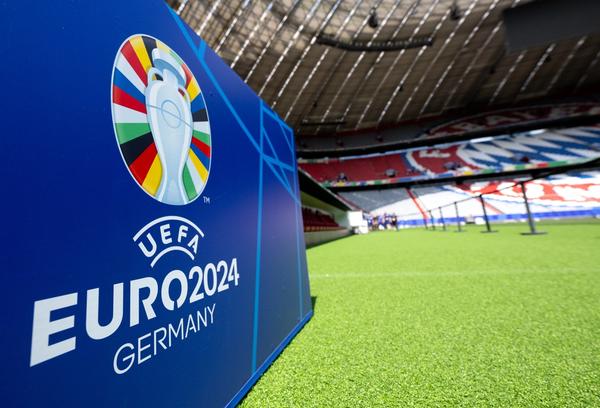
⚽️ How it works
The UEFA European Men’s Championship, a mouthful better known as the men’s Euro, brings Europe’s top 24 soccer countries together once every four years to duke it out for continental glory.
The tournament consists of two stages: first, a three-game round robin group stage, with the 24 teams divided into six groups. The two teams from each group who accumulate the most points — three for a win, one for a draw, zero for a loss — plus the four best third-place teams advance to the knockout stage.
- The knockout stage includes the round of 16, quarter-finals, semifinals, and, of course, the championship match. After 51 games over a month-long football frenzy, the 2024 champ will be crowned at Berlin’s 71K-seater Olympiastadion on July 14th. Mark that cal.
As a continental championship featuring some of the best national teams in the world, the Euro makes headlines all over the globe — in fact, it’s the second most-watched tourney behind the iconic FIFA World Cup.
- So set out the face paint and scroll on for everything you need to know about each drama-filled group.
🇩🇪 🇨🇭 🇭🇺 🏴 Group A: World No. 16 Germany, No. 19 Switzerland, No. 26 Hungary, No. 39 Scotland
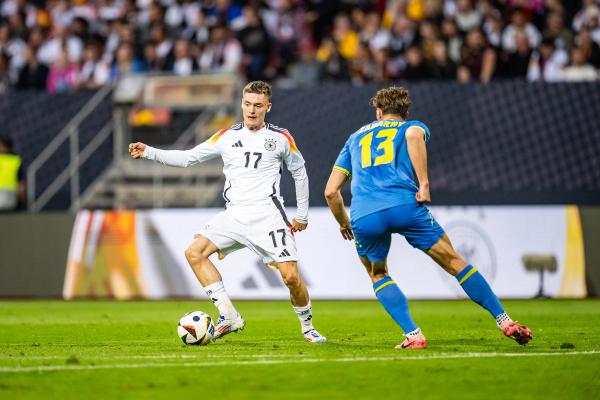
The favorite: Hosts Germany had morale-boosting friendly wins over tournament favorite No. 2 France and No. 7 Netherlands earlier this year, and after disappointing early exits at both the 2018 and 2022 World Cups, the new-look Deutsche have lots to prove in front of their raucous home crowd.
The dark horses: Headlined by star midfielder Dominik Szoboszlai, the Hungarians are appearing in their third straight Euro, went undefeated in qualifiers, and could make a deep tournament run…if they live up to their potential.
- But with Scotland, cheered on by their Tartan Army, searching for their first major tournament win since 1996 and a Swiss side that’s higher than both Scotland and Hungary in the FIFA rankings, Group A is truly bringing the heat.
A player to watch: A wunderkind no more, 21-year-old midfielder Florian Wirtz has been dominating pro German football for nearly half a decade. Wirtz has drawn comparisons to the one and only Lionel Messi for his playmaking abilities and will make his first major tournament debut after missing the 2022 World Cup with a knee injury. Remember the name.
🇪🇸 🇮🇹 🇭🇷 🇦🇱 Group B: No. 8 Spain, No. 9 Italy, No. 10 Croatia, No. 66 Albania
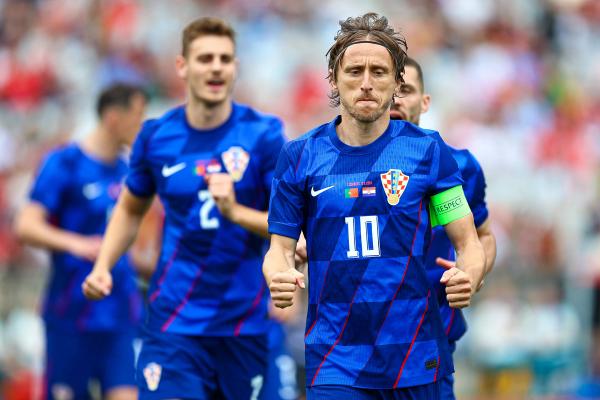
The favorites: The Croatians have been defying expectations on the global stage, finishing third at the 2022 World Cup after a second-place finish in 2018, but they haven’t been able to replicate that success at the Euro…yet. With 38-year-old midfielder Luka Modrić aging like fine wine, there’s no time like the present.
- But they’ll have to contend with a deep Spanish squad chock full of youth and experience — the top of the table will be crowded in the undisputed group of death.
The dark horse: Reigning Euro champs Italy can’t be underestimated despite showcasing more will-they-won’t-they tendencies than a sitcom romance. The Azzurri failed to qualify for the last two World Cups but won the Euro 2020 title in the middle of that sadness sandwich. Hmmm.
A player to watch: Sixteen-year-old Lamine Yamal is set to become the youngest player to debut for Spain at the Euro, and that’s not the only superlative to his name — he’s the youngest player to score in the Spanish league, start in the Champions League, and score for Spain’s national team. This kid is definitely alright.
🏴 🇩🇰 🇷🇸 🇸🇮 Group C: No. 4 England, No. 21 Denmark, No. 33 Serbia, No. 57 Slovenia
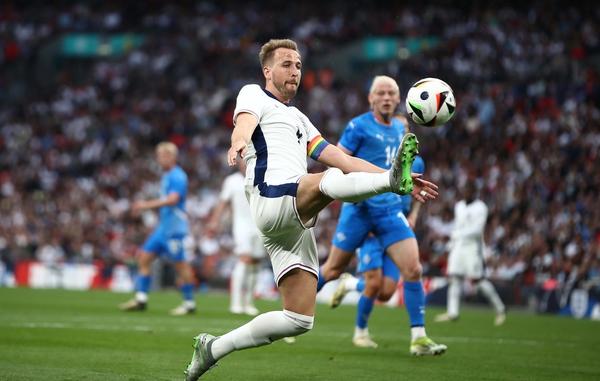
The favorite: Last Euro, the English were a penalty kick away from winning their first trophy since the 1966 World Cup. With a lion-sized appetite for revenge, plus an easier group draw, the tourney favorites must be feeling jolly good. It just might be coming home.
The dark horses: Denmark is the definition of a dark horse — they completed a masterful run to the 2020 edition semis after tragedy nearly struck midfielder Christian Eriksen, who’s back and in fine form to anchor the Danish midfield once again.
- But don’t forget Serbia, whose dynamic forward duo of Aleksandar Mitrović and Dušan Vlahović have a knack for finding the back of the net.
A player to watch: Among an English side lined with must-watch footballers, midfielder Jude Bellingham has straight up dazzled. The 20-year-old Real Madrid superstar is one of the best in the biz, amassing 24 goals in 45 games for his La Liga club.
🇫🇷 🇳🇱 🇦🇹 🇵🇱 Group D: No. 2 France, No. 7 Netherlands, No. 25 Austria, No. 28 Poland

The favorites: France joins their historical archnemesis, England, as pre-tournament faves. Les Bleus boast talent across the board and have appeared in back-to-back World Cup finals, including winning it all in 2018. It certainly helps when the best player in the world, Kylian Mbappé, blasts magnifique golazos regularly on the world stage.
- Meanwhile, even without injured midfielder Frenkie de Jong, the Netherlands should be the other team to advance from Group D. That said, despite having the pedigree of a champion, the Oranjes don’t have the consistency of one. Root at your own risk.
The dark horse: Austria had an impressive qualifying, led by forward Michael Gregoritsch and midfielder Christoph Baumgartner notching three goals each in six matches. Knowledge experience is power for this battle-tested squad.
A player to watch: If Poland wants to make noise in the group stage, national hero Robert Lewandowski will need to be a man on a mission. The 35-year-old has only managed seven goals in his last 18 national team appearances — maybe he’s saving his best for Europe’s biggest stage.
🇧🇪 🇺🇦 🇷🇴 🇸🇰 Group E: No. 3 Belgium, No. 22 Ukraine, No. 46 Romania, No. 48 Slovakia

The favorite: Belgium is the clear-cut group favorite, even in the midst of a changing of the guard. National team mainstays like midfielder Kevin De Bruyne rep the golden generation, while youngsters like forwards Jérémy Doku and Johan Bakayoko provide a youthful balance — a combo that rivals chocolate and waffles.
The dark horses: All eyes are on Ukraine to cause a stir in Group E. Bolstered by La Liga’s top scorer, Artem Dovbyk, the Ukrainian contingent will be making their fourth straight Euro appearance and should expect a warm welcome from the local fans after playing their home qualifying games in Germany.
- With staunch sides from both Romania and Slovakia rounding out the group, the three-horse race for group runner-up will be feisty.
A player to watch: Alongside the talented Dovbyk, one of the brightest stars on the still-displaced Ukrainian side is midfielder Heorhiy Sudakov, whose slick ball handling and stellar defense could land him a lucrative new contract post-tournament. Cha-ching.
🇵🇹 🇨🇿 🇹🇷 🇬🇪 Group F: No. 6 Portugal, No. 36 Czechia, No. 40 Türkiye, No. 75 Georgia
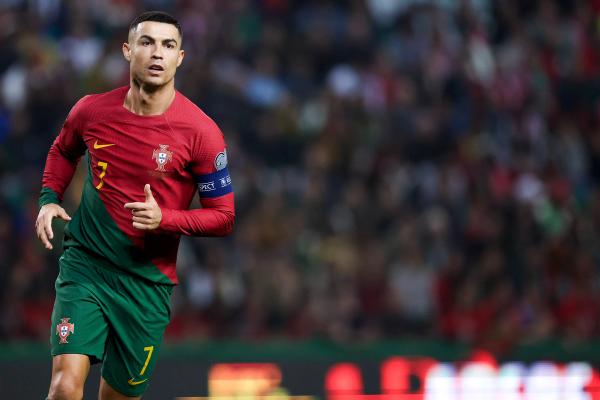
The favorite: Portugal blazed through their qualifying games, burying a whopping 36 goals in 10 matches while only surrendering two. With a stacked lineup of stalwart defenders, masterful midfield passers, and a dominant attack, they’re expected to run away with first-place in Group F.
The dark horses: The other three members of the Group F quartet are singing slightly different tunes: Georgia will be making their first-ever Euro appearance, Czechia’s messy qualifying led to an eighth straight Euro appearance, and Türkiye will be aiming to avoid a third straight group-stage exit.
A player to watch: Who else but Cristiano Ronaldo, Portugal’s headliner for the better part of two decades. The inevitable passing of the torch is closer than ever, but the 39-year-old maestro isn’t done yet, netting 10 goals during Portugal’s perfect qualifying campaign. The elder millennial magic endures.
Enjoying this article? Want more?

Sign up for The GIST and receive the latest sports news straight to your inbox three times a week.


